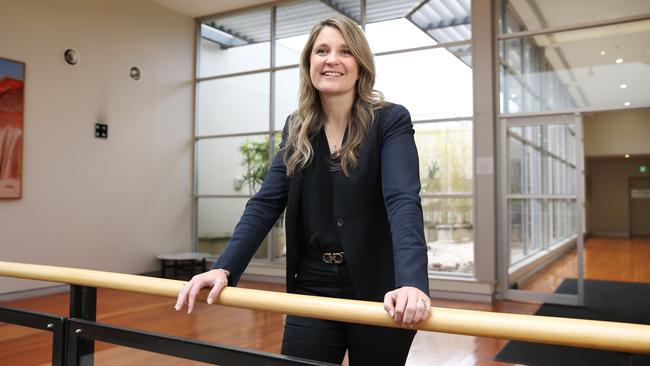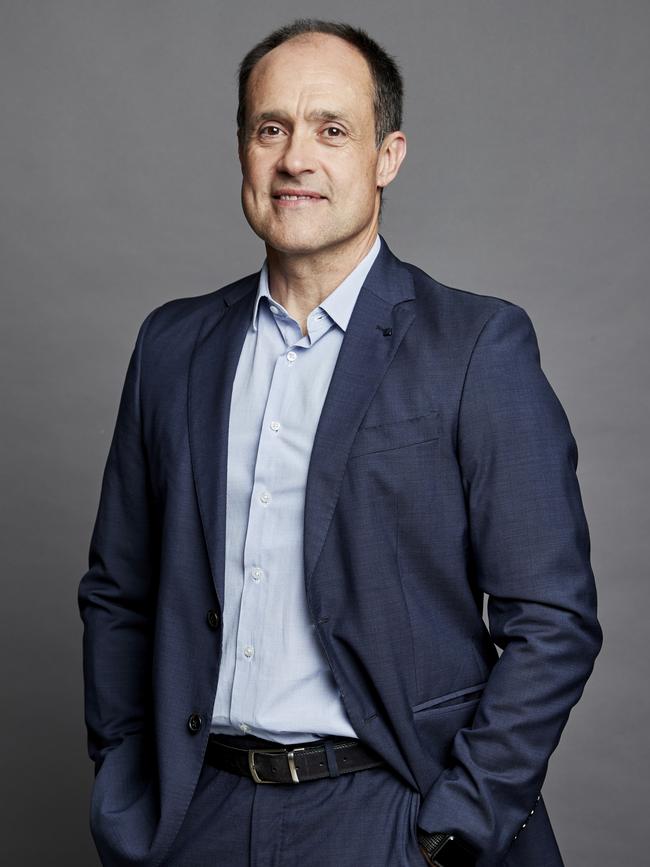Optus CEO Kelly Bayer Rosmarin warns of ‘great resignation’ hitting Australia’s largest companies
Optus chief executive Kelly Bayer Rosmarin has warned of the ‘Great Resignation’ hitting Australia’s largest companies including Optus.

Optus chief executive Kelly Bayer Rosmarin has warned of the “Great Resignation” hitting Australia’s largest companies including Optus, with pressure on wages affecting the telco’s ability to fill hi-tech roles including developers and data scientists.
Speaking at a strategy day on Wednesday, Ms Bayer Rosmarin said the battle for quality talent was not just confined to the tech sector, but was instead being felt across the economy.
“We are seeing increased turnover across the whole business community, and this is no different,” she told journalists and analysts.
“But the way that I think about the Great Resignation is that it’s a wonderful opportunity for companies like Optus to be big beneficiaries. As people take stock and say ‘where is a place I can work that really wants to invest in my skills and capabilities, that’s at the forefront of cutting-edge innovation’ … The merry-go-round that’s going to happen creates a wonderful opportunity for Optus.”
Optus separately on Wednesday made two product announcements, including a home internet-of-Things play called ‘Smart Spaces’ along with ‘Optus Call Notes’, a new artificial intelligence-driven feature which transcribes mobile calls in real-time.
It comes after Telstra and Optus splashed a combined total of more than $2bn on valuable mobile spectrum on Wednesday, as both companies battle for national 5G supremacy.
As part of an auction held by telecommunications regulator ACMA, Optus shelled out the lion’s share of cash for low-band spectrum, spending $1.4bn to purchase 12 lots of 900MHz spectrum. Telstra won four lots of 850MHz spectrum for $616m, the maximum it could acquire under competition rules.
The low-band spectrum will help the telcos reach rural and regional Australia with super-fast 5G connectivity.
“We’re absolutely delighted with the outcome of the spectrum auction,” Optus chief executive Kelly Bayer Rosmarin said on Wednesday.
“Not all 5G is created equal, and there are some of our competitors who just care about getting the 5G logo on the phone but aren’t delivering a differentiated experience, and at Optus we’ve been focused on delivering the real 5G experience and the fastest 5G experience. As we get low-band spectrum added to the mix, we’ll be able to dramatically increase our coverage over time and bring real choice and competition to millions and millions of Australians.
“It’s a great outcome for Optus and for Australia.”
Telstra chief financial officer Vicki Brady said securing its spectrum was strategically important for Telstra.
“With the 2x10MHz of 850MHz spectrum we’ve secured in this auction, added to our existing spectrum holdings, we now hold 2x40MHz of low-band spectrum in the major cities and 2x45MHz in regional and remote areas,” Ms Brady said.
“This is more than any other carrier, which is important given our larger customer base, and will help us continue to provide the best mobile coverage and service.”

TPG elected not to bid, with chief executive Iñaka Berroeta declaring that his company already “has strong low-band spectrum holdings that are already deployed in our 4G and 5G networks.”
“Given our existing low-band spectrum, TPG Telecom determined it was not in the best interests of our customers or shareholders to acquire more low-band spectrum at this auction,” he said.
“Our 5G stand-alone network now covers more than 85 per cent of the population in ten of Australia’s biggest cities and centres, and we look forward to bringing 5G to more customers in coming months and years.”
Communications Minister Paul Fletcher described 2021 as ‘the year of 5G’ and has announced an additional $20m for the second round of the government’s ‘Australian 5G Innovation Initiative’, including $2m specifically for eight Western Sydney council areas.
“In the ‘Year of 5G’, the Australian 5G Innovation Initiative is helping to facilitate the trials of 5G technologies that can have a transformative impact across the Australian economy, including through applications like smart factories and warehouses, logistics management and autonomous vehicles,” Mr Fletcher said.
“Round one of the program was a success, with 19 new and innovative projects across multiple sectors including agriculture, construction, manufacturing, transport, and education and training underway.
“Under round two, we’ve set aside up to $2 million for projects in Western Sydney — building on the Morrison government’s record investment in the region to drive job creation, enhance liveability and realise the bold vision for the Western Parkland City.”
Mr Fletcher said consultation on the draft guidelines is expected to commence in the coming weeks, with the announcement of successful projects to occur in 2022.






To join the conversation, please log in. Don't have an account? Register
Join the conversation, you are commenting as Logout